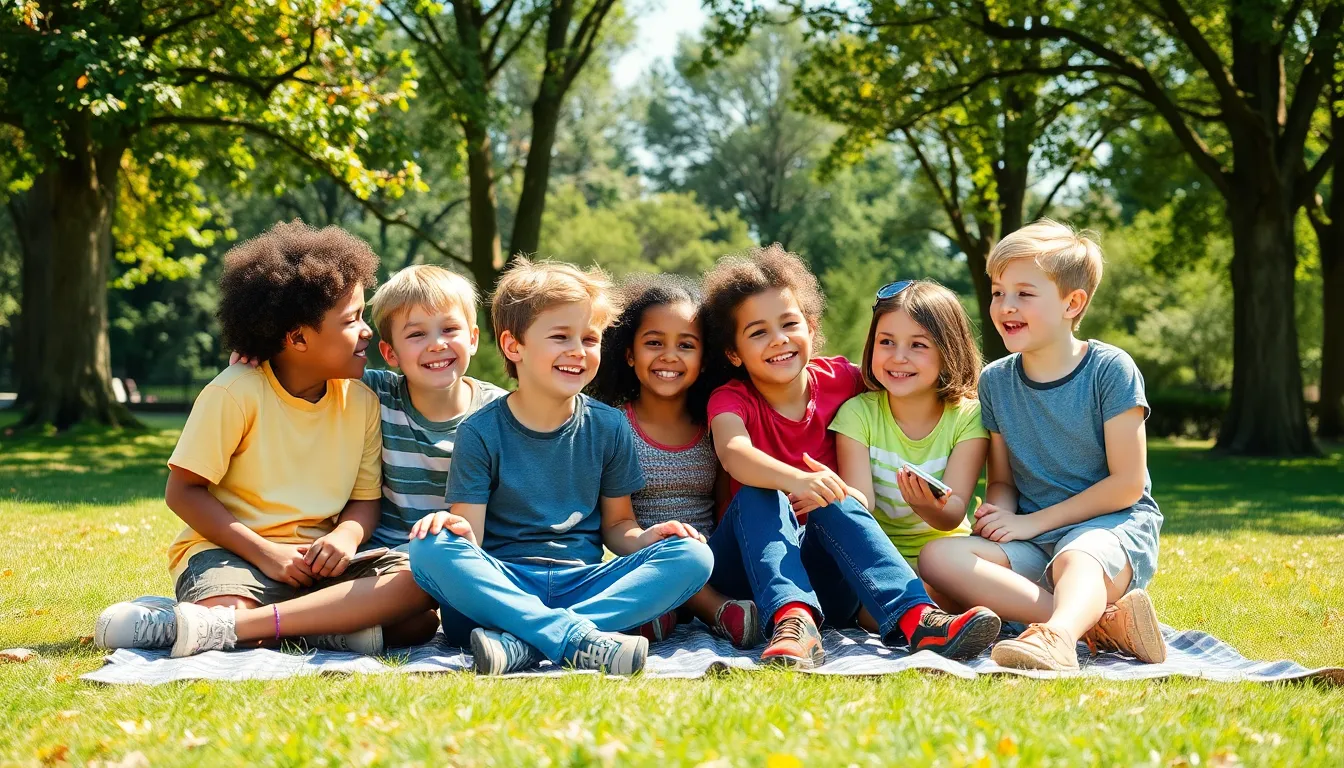Table of Contents
ToggleNavigating the world of dating can be a complex journey, especially for children and adolescents. As they grow and begin to form relationships, understanding the nuances of dating becomes essential. Parents and guardians often find themselves in uncharted territory, seeking to guide their children through this pivotal stage of life.
In today’s digital age, dating doesn’t just happen at school or during community events. With social media and dating apps, children are exposed to a broader range of interactions than ever before. This shift brings both opportunities and challenges, making it crucial for adults to foster open conversations about healthy relationships, boundaries, and self-respect. By equipping children with the right tools and knowledge, they can navigate dating with confidence and awareness.
Understanding Children and Dating
Navigating the dating landscape presents unique challenges for children and adolescents. Recognizing the factors that contribute to healthy relationships lays a strong foundation for their growth.
The Importance of Healthy Relationships
Healthy relationships empower children to develop self-esteem and social skills. They teach respect, communication, and emotional intelligence. Open discussions about emotions help children identify what healthy interactions look like. Parents should encourage children to express their feelings and set boundaries. These conversations equip children with the tools necessary to build respectful and supportive connections.
Age-Appropriate Dating Concepts
Age-appropriate dating concepts vary based on maturity levels and developmental stages. Younger children might engage in group activities, such as friendship gatherings and simple outings. As they grow, one-on-one interactions may develop, introducing them to dating in a more structured way. It’s crucial for parents to explain the difference between friendship and romantic interest. Clear communication about intentions helps children understand their feelings, promoting responsible dating behavior as they mature.
Signs of Readiness for Dating

Recognizing signs of readiness for dating in children involves assessing their emotional maturity and social skills development. Understanding these aspects helps parents and guardians provide appropriate guidance.
Emotional Maturity
Emotional maturity reflects a child’s ability to manage feelings and understand the emotions of others. Signs include:
- Self-awareness: They can identify and express their feelings clearly.
- Empathy: They show concern for others’ emotions and demonstrate compassion.
- Resilience: They handle setbacks and disappointment with a positive attitude.
- Decision-making: They can evaluate situations logically and make informed choices.
Children exhibiting these traits are often better equipped to navigate the complexities of relationships.
Social Skills Development
Effective social skills are crucial for dating success. Indicators of social skills development include:
- Communication: They express thoughts clearly and listen actively to others.
- Conflict resolution: They manage disagreements calmly and work toward solutions.
- Respect: They treat peers and potential partners with consideration and kindness.
- Confidence: They interact with others comfortably and engage in social settings.
Strong social skills enable children to build healthy relationships and foster positive interactions with potential partners.
Parental Involvement and Guidance
Parental involvement is crucial in helping children navigate the dating landscape. Parents play a vital role in setting guidelines and fostering open dialogue around relationships.
Setting Boundaries
Setting boundaries is essential for children as they begin dating. Parents should define what is acceptable behavior regarding dating. They can establish rules that consider the child’s age and maturity level, such as restrictions on solo outings or guidelines for social media interactions. Clear boundaries provide a sense of security and help children make responsible choices. Parents might discuss concepts like curfews, communication expectations, and the importance of consent, ensuring children understand their rights and responsibilities in relationships.
Open Communication
Open communication fosters trust and understanding between parents and children. Parents should encourage children to share their thoughts and feelings about dating without fear of judgment. Regular discussions about relationships help children feel comfortable seeking advice when needed. Parents can ask questions about their child’s experiences and opinions, promoting dialogue about healthy relationship dynamics. By maintaining an open line of communication, parents equip children with the skills to express their emotions and navigate challenges, reinforcing that they can always turn to them for support.
Impact of Dating on Children
Dating impacts children in various ways, offering both positive benefits and potential risks. Understanding these aspects equips parents and guardians to guide their children through their dating experiences.
Positive Benefits
- Self-Esteem Enhancement: Healthy dating experiences boost children’s self-esteem. Positive interactions foster a sense of worth and validation.
- Social Skills Development: Navigating dating helps children develop essential social skills. They learn effective communication, empathy, and conflict resolution through interactions.
- Emotional Intelligence Growth: Engaging in romantic relationships cultivates emotional intelligence. Children learn to manage their emotions, recognize others’ feelings, and respond appropriately.
- Relationship Understanding: Early dating experiences teach children the dynamics of relationships. They start to grasp the importance of mutual respect, trust, and open communication.
- Independence and Responsibility: Dating encourages a degree of independence. Children learn to make choices and understand the responsibilities that come with relationships.
Potential Risks
- Emotional Turmoil: Children may face emotional challenges during dating. Breakups or conflicts can lead to stress, anxiety, or low self-esteem.
- Peer Pressure: Dating can introduce peer pressure regarding behavior and relationships. This pressure may lead to risky decisions or unhealthy relationship dynamics.
- Distraction from Priorities: Romantic interests can distract children from academics or extracurricular commitments. Balancing dating with responsibilities is crucial.
- Inappropriate Situations: Without guidance, children may find themselves in unhealthy or unsafe situations. Parents must instill the importance of boundaries and consent.
- Misinterpretation of Relationship Dynamics: Children may struggle to differentiate between friendship and romantic interest, leading to confusion and miscommunication in relationships.
Navigating the world of dating can be a pivotal experience for children and adolescents. With the right guidance and open communication from parents, children can learn to establish healthy relationships that foster personal growth. It’s essential for parents to recognize the signs of emotional maturity and social skill development in their children.
By encouraging discussions about boundaries and respect, parents can empower their children to make informed decisions. Understanding the balance between the benefits and risks of dating will help children develop the confidence and resilience needed to thrive in their relationships. Ultimately, a supportive environment lays the foundation for a positive dating experience, shaping their future interactions and emotional well-being.





